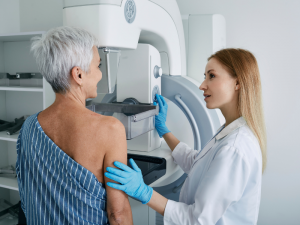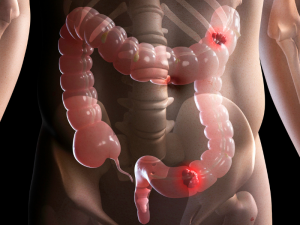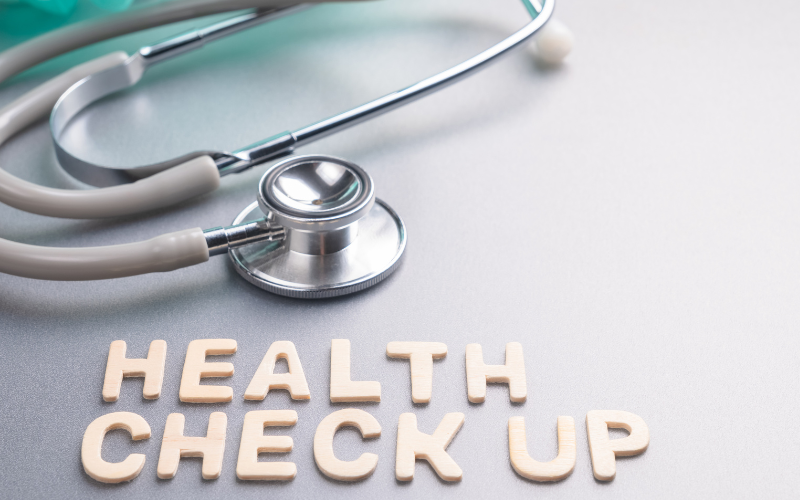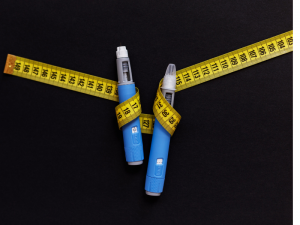This isn’t my usual kind of post, but it’s an important one. It’s about health checks, speaking up, and not ignoring when something doesn’t feel right in your body.
I think of healthcare as a blend of science, art, and judgment. Medical screening is one of the simplest and most effective ways to care for your health now and in the future. Getting a diagnosis is not just about test results. It starts with noticing early changes, asking questions, and piecing together your health jigsaw. That responsibility begins with you. Many NHS screening programmes send automatic invitations, but some require you to take the initiative. Keep an eye out for invites, speak with your GP or practice nurse, and use the NHS App to check which screenings you need.
Many serious conditions show no obvious signs early on and may only become clear when the situation is critical. For example, heart disease symptoms can be subtle, especially in women. High blood pressure often has no symptoms. That’s why routine screenings matter. They quietly detect problems early, when treatment is usually simpler and more effective.
Key NHS Screening Programmes
Screenings detect early signs of illness before symptoms appear. These include common conditions like osteopenia and osteoporosis, as well as cancers such as bowel, breast, prostate, and cervical. The NHS offers several screening programmes to help with this, but staying proactive, monitoring your health, and speaking up if something feels off remains essential, even when working with healthcare providers.
Cervical Screening
Cervical screening (smear tests) is offered to all women and people with a cervix aged 25 to 64. Testing intervals depend on age. It detects changes that could lead to cervical cancer. Alarmingly, uptake remains low in the UK.
Breast Screening
The NHS Breast Screening Programme invites women aged 50 to 70 for mammograms every three years. In some areas, women aged 47 to 73 are included in a trial to catch cancer earlier.
Around 56,000 women in the UK are diagnosed with breast cancer annually. Most cases occur in women over 50, but about 5,000 cases happen in women under 45, and 2,200 in women under 40.

Breast cancer seems to be increasing among younger women. Mammograms work best for older women and are not usually recommended for those under 45. Many younger women find breast cancer through self-checks.
Know the signs: lumps, changes in skin or nipple, discharge, or swelling in the armpit. If you notice anything unusual or have a family history, speak with your GP.
Men can get breast cancer too. Around 400 men are diagnosed each year in the UK. They should also report any signs to their GP without delay.
Bowel Screening
If you are aged 60 to 74 (or 50 and over in some areas), you’ll usually be invited every two years to complete a simple home stool test. It’s quick, painless, and can detect hidden signs of bowel cancer early.

Bone Health, DEXA Scans, and Vitamin Osteoporosis is common, especially in postmenopausal women. It causes gradual loss of bone density and strength. Bones become thin and fragile, increasing fracture risk from minor falls or daily activities. This develops silently over years without symptoms until a fracture occurs, causing pain, reduced mobility, and lower quality of life.
A DEXA scan measures bone density and detects osteopenia, which often precedes osteoporosis. Early detection allows lifestyle changes or treatment to slow bone loss and reduce fracture risk.
DEXA scans aren’t routine but recommended for higher-risk people, including:
-
Women over 65
-
Anyone with a fracture after 50
-
Long-term steroid users
-
Those with low BMI, early menopause without hormone replacement, or family history of osteoporosis
-
People with rheumatoid arthritis, coeliac disease, or history of eating disorders
-
Men over 70 with fractures, low testosterone, or prostate cancer history

Vitamin D plays a vital role too. It supports bone health and many body functions. Deficiency is common in the UK due to limited sunlight and sun avoidance. Your GP may check levels if you have bone pain, muscle weakness, or risk factors. Maintaining healthy levels is a simple but important part of prevention.
Tip: Your GP may not know your full medical or family history, so share anything that could be relevant.
Prostate Screening
The NHS does not offer routine prostate screening. If you are over 50 or have a family history, talk to your GP about the PSA blood test.
High-risk groups include:
-
Men of African or Caribbean heritage
-
Men with a father or brother diagnosed before age 60
-
Men with multiple family members affected by prostate or related cancers

PSA tests are not perfect. Raised PSA does not always mean cancer. It could be infection, inflammation, or an enlarged prostate. Some prostate cancers do not raise PSA. The NHS recommends discussing risks and benefits with your GP before testing.
Many men avoid prostate checks due to embarrassment or anxiety. The first step is usually a simple blood test. Physical exams are not always needed. If a rectal exam is required, it is quick, respectful, and painless.
Other Important Screenings
-
NHS Health Check (ages 40 to 74): Every five years, reviewing blood pressure, cholesterol, BMI, and diabetes risk to assess heart health.
-
Blood Pressure: Regular checks from age 40 help detect hypertension, a major risk for stroke and heart disease.
-
Cholesterol: Often tested with the NHS Health Check or earlier if at risk.
-
Diabetes: Simple blood tests detect type 2 diabetes, which often has no early symptoms.
-
Alcohol Screening: Questionnaires like AUDIT-C help identify harmful drinking early.
-
Dementia Risk Checks (65+): Memory and thinking tests for early cognitive decline.
-
Mental Health Checks: GPs increasingly assess wellbeing and mood for holistic care.
Navigating NHS Screening and Your GP
The NHS sends invitations for many screenings, but these can be missed or delayed. If you think you’re due or at risk, don’t wait to be invited—ask your GP. Sharing your full medical and family history helps your healthcare team give the best care. The NHS App helps track appointments, results, and screening schedules.
Final Thought
Screening saves lives by catching illness early, often before symptoms appear. It can feel like a hassle, and GP appointments aren’t always easy to get. But caring for your health now is one of the best gifts you can give your future self. If you’re unsure where to start or want to talk, bring it up with me at your next appointment or class. I’m always happy to help.







